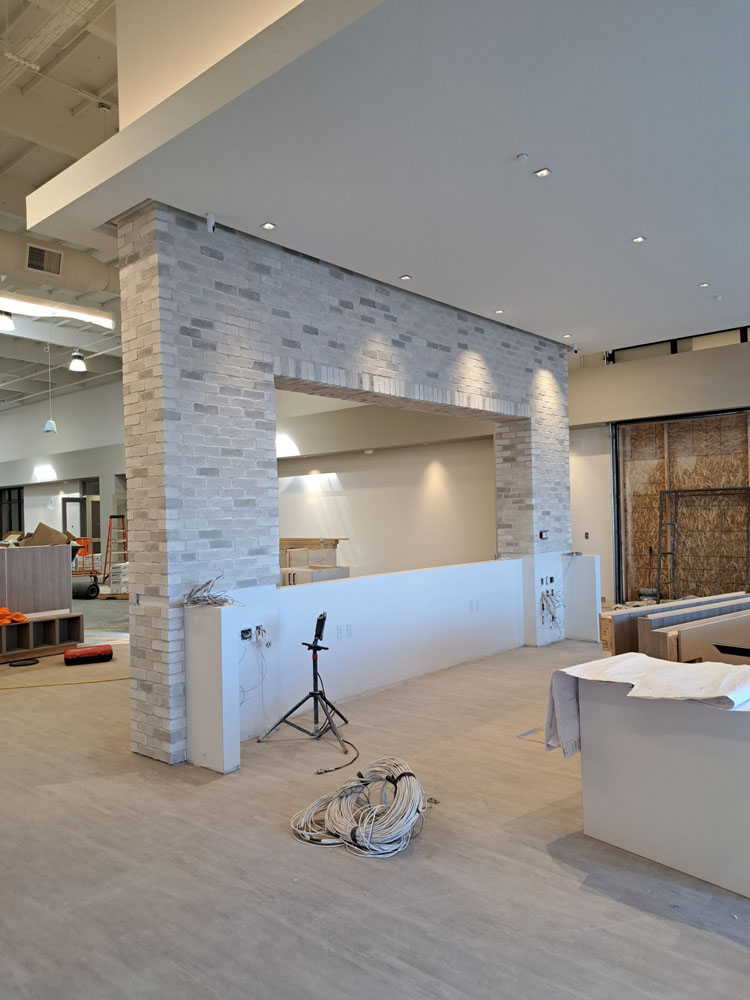Introduction
Masonry is often regarded as one of the most durable and sturdy construction methods known to man. From historic buildings to modern homes, masonry lends an air of permanence and resilience. However, even the strongest structures can suffer from wear and tear over time. This leads us to a critical question: Why should you never delay on critical masonry repairs? The answer lies in understanding the implications of neglecting masonry issues, recognizing the signs of damage, and knowing when to call a professional masonry contractor. In this comprehensive article, we’ll delve deeply into the reasons why timely masonry repairs are not just advisable but essential.
Understanding Masonry Work
What is Masonry?
Masonry involves constructing structures from individual units like bricks, stones, or concrete blocks. The durability of these materials makes masonry a popular choice for both residential and commercial properties.
Types of Masonry
Brick Masonry: Known for its thermal efficiency and aesthetic appeal. Stone Masonry: Offers unparalleled strength and longevity. Concrete Block Masonry: Highly versatile and cost-effective.The Role of a Masonry Contractor
A masonry contractor specializes in building and repairing structures using various materials. Their expertise ensures that any work done adheres to local codes and standards, providing peace of mind for homeowners.
Signs That Your Masonry Needs Repairs
Cracks in Walls
- Small cracks may seem minor but can indicate deeper structural issues. Larger cracks could signify major problems requiring immediate attention.
Deteriorating Mortar Joints
- Missing or crumbling mortar can weaken the integrity of your walls. Regular inspection by a masonry contractor can prevent further damage.
Water Damage or Staining
- Water marks or efflorescence on brick surfaces indicate moisture intrusion. Such issues demand prompt action to prevent mold growth or structural decay.
Bowling Walls
- Bulging walls can signal serious structural failure. This condition should be addressed immediately by professionals.
Why You Should Never Delay on Critical Masonry Repairs
Delaying necessary masonry repairs can lead to significant consequences that extend beyond mere aesthetics. When damage goes unaddressed:
Structural Compromise: Over time, small cracks can evolve into significant fissures that compromise the safety of your home.
Increased Repair Costs: What starts as a minor issue can escalate into an expensive repair project if neglected.
Decreased Property Value: Potential buyers are often deterred by visible signs of neglect, affecting your home’s resale value.
Health Risks: Moisture problems may lead to mold growth, posing health risks to you and your family.
Energy Inefficiency: Damaged masonry can affect insulation, leading to higher energy bills as heating or cooling systems work overtime.
The Long-Term Implications of Delaying Repairs
Cost Implications
Neglecting minor repairs today could translate into significant financial burdens tomorrow.
| Problem Type | Estimated Repair Cost | Timeframe for Escalation | |-------------------|-----------------------|--------------------------| | Minor Cracks | $200 - $500 | 6 months | | Major Structural Issues | $5,000 - $15,000 | 2 years |
Safety Concerns
Failing masonry poses risks not only to property but also to the safety of its occupants.
The risk of collapse increases with time. Falling debris can jeopardize lives during severe weather events.When to Call a Professional Masonry Contractor
It’s vital to know when it’s time to reach out for professional help:
If you notice extensive cracking or bulging in walls. When water infiltration becomes apparent through stains or efflorescence. If you're unsure about assessing damage—always err on the side of caution!Choosing the Right Masonry Contractor
Qualifications to Look For
When searching for a reputable masonry contractor:
- Check their licensing and insurance coverage. Look for reviews or testimonials from previous clients.
Questions to Ask Before Hiring
Masonry Contractor Near You in Salem What experience do you have with projects similar to mine? Can you provide references? What warranties do you offer on your work? https://medium.com/@john7765/masonry-contractor-services-quality-craftsmanship-that-stands-the-test-of-time-e612bf9281bbGetting Estimates
Obtaining multiple estimates helps ensure fair pricing without sacrificing quality:
- Always ask for detailed breakdowns in repair costs. Avoid contractors who provide vague estimates without proper inspections.
The Process of Masonry Repair
Assessment Stage
A thorough evaluation will help identify areas needing repair and understand potential underlying issues.
Repair Methods Used by Contractors
Repointing: Replacing old mortar joints with new mortar is crucial in maintaining wall stability.
Waterproofing: Applying sealants helps prevent moisture penetration through porous materials like brick or stone.

Structural Reinforcement: Adding support where necessary will help maintain safety standards.
Preventative Maintenance Tips
Keeping your masonry intact requires regular upkeep:
Inspect your foundation seasonally for signs of wear. Clean gutters frequently to prevent water overflow onto walls. Seal cracks promptly before they turn into larger problems.FAQs
1. Why is it essential not to delay repairs?
Delaying repairs can lead to higher costs, structural instability, and potential safety hazards.
2. How do I know if my masonry needs urgent attention?
Look for visible cracks, water stains, bowing walls, or missing mortar joints as indicators that immediate action is needed.
3. Can I perform minor repairs myself?
While some small fixes may be DIY-friendly, hiring a professional ensures that repairs meet safety standards and extend the life of your structure.
4. How do I find a reliable masonry contractor?
Ask for recommendations from friends or family, check online reviews, and verify credentials before hiring anyone for repairs.
5. Is waterproofing important?
Yes! Waterproofing prevents moisture intrusion which can lead to mold growth and deterioration over time.
6. How often should I inspect my masonry?
It's advisable to conduct inspections at least twice a year—preferably during spring and fall—to catch potential issues early on.
Conclusion
In summary, understanding why you should never delay on critical masonry repairs is crucial for maintaining both the aesthetic appeal and structural integrity of your property! Whether you're facing minor cosmetic issues or significant structural challenges, timely intervention by an experienced masonry contractor can save you money in the long run while ensuring safety for all inhabitants within your home! Don’t gamble with something so fundamental; take proactive steps today!